eBay Wins Dismissal Of EPA Suit; Court Affirms Section 230 Protections For Items Sold On The Site
UPDATE 4-24-25
After previously requesting more time to file their opening brief, the US Department of Justice has decided to drop their appeal of Section 230 dismissal in EPA case which sought to hold eBay liable for illegal items sold on their site.
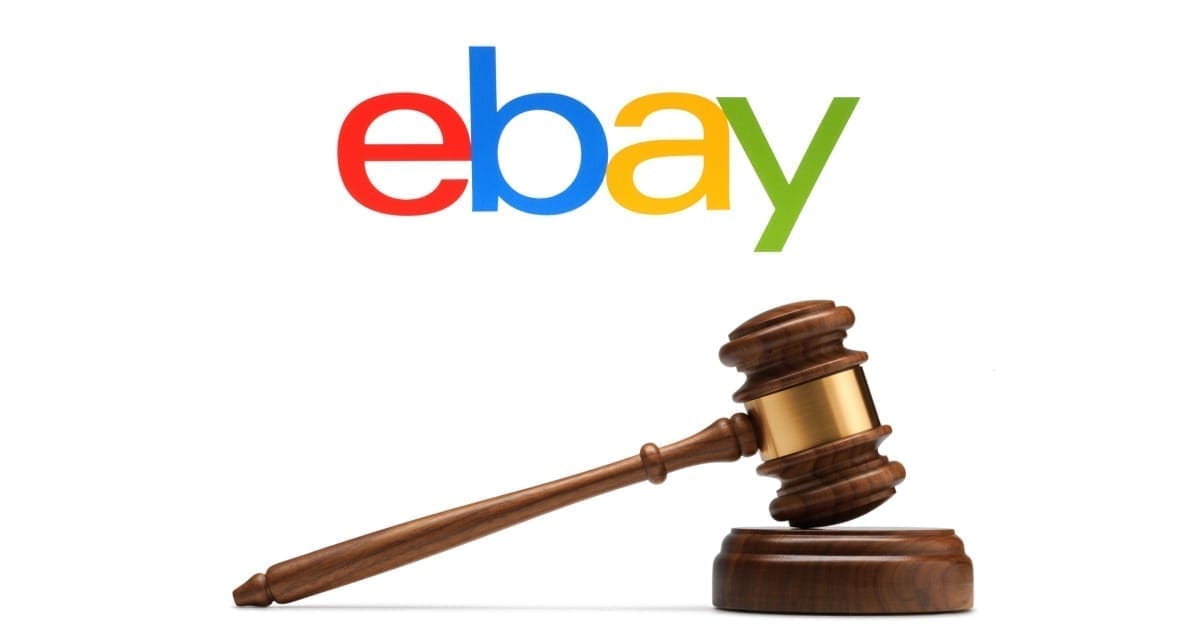
UPDATE 12-1-24
The Department of Justice has officially filed a notice of appeal in this case, seeking to convince the United States Court of Appeals 2nd Circuit to overturn U.S. District Judge Orelia Merchant's September 30, 2024 dismissal.
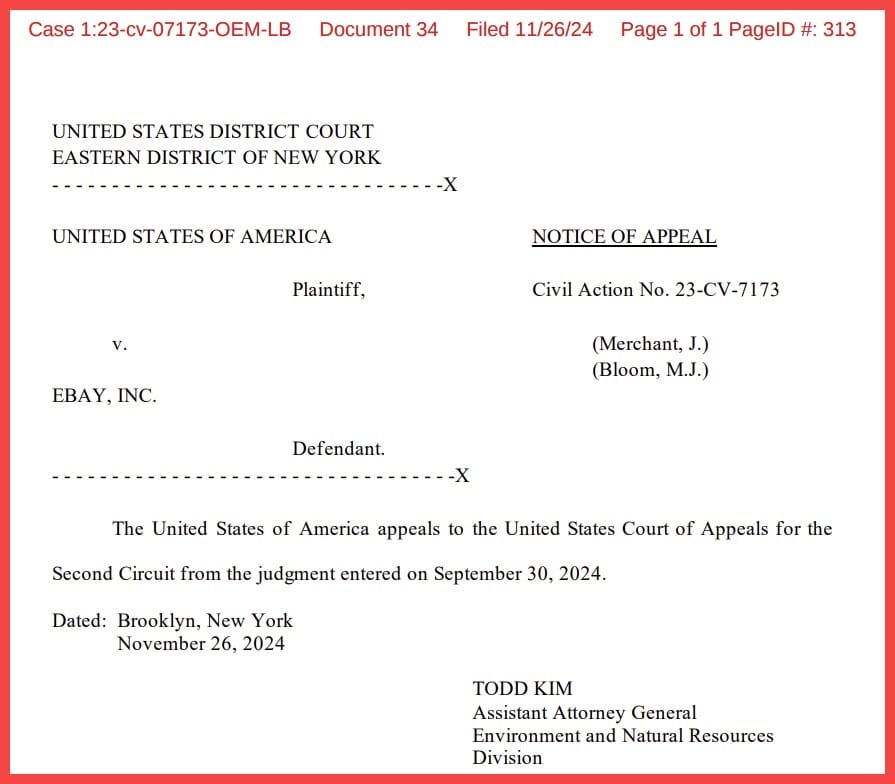
eBay has won dismissal of a lawsuit brought by the EPA last year seeking to hold the company liable for pesticides, chemicals, and illegal emissions control cheat devices sold on the platform.
But eBay brought in some heavy-hitters, hiring law firms with notable history in defense against environmental claims (including representing Volkswagen and Fiat Chrysler through their respective diesel emissions scandals as well as BP during the Deepwater Horizon oil spill) and a strategy that focused heavily on arguing Section 230 of the Communications Decency Act protects eBay from liability for items sold by 3rd parties on their site.
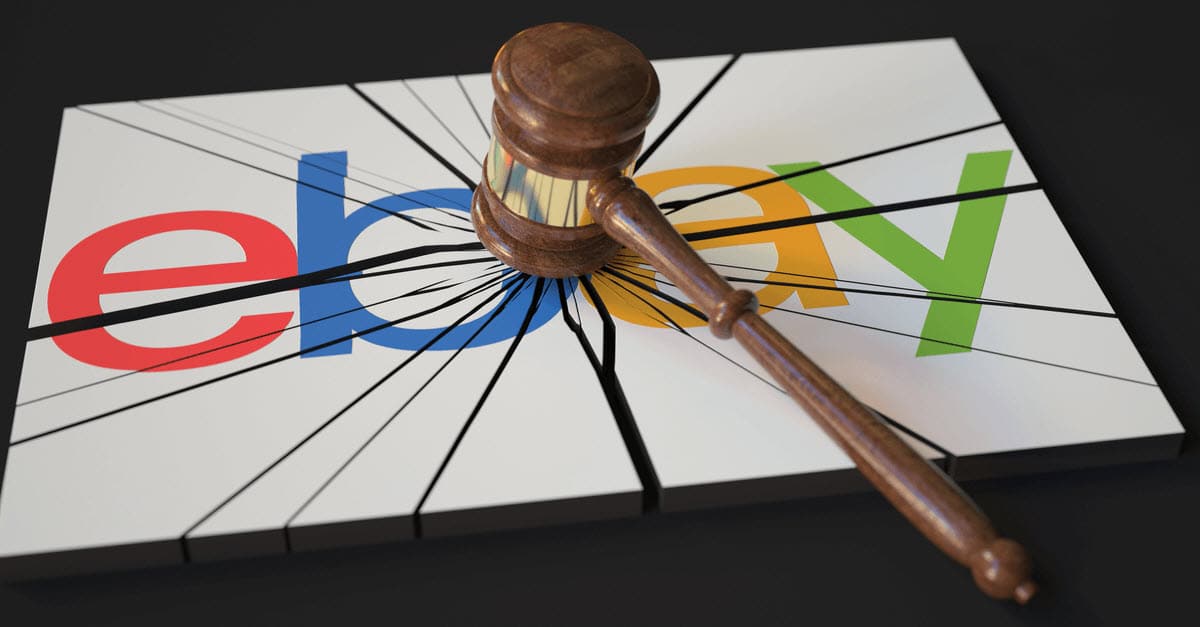
It appears those Section 230 arguments were compelling, as U.S. District Judge Orelia Merchant noted agreement with eBay, among other reasons, for granting the motion dismissing the EPA's case.
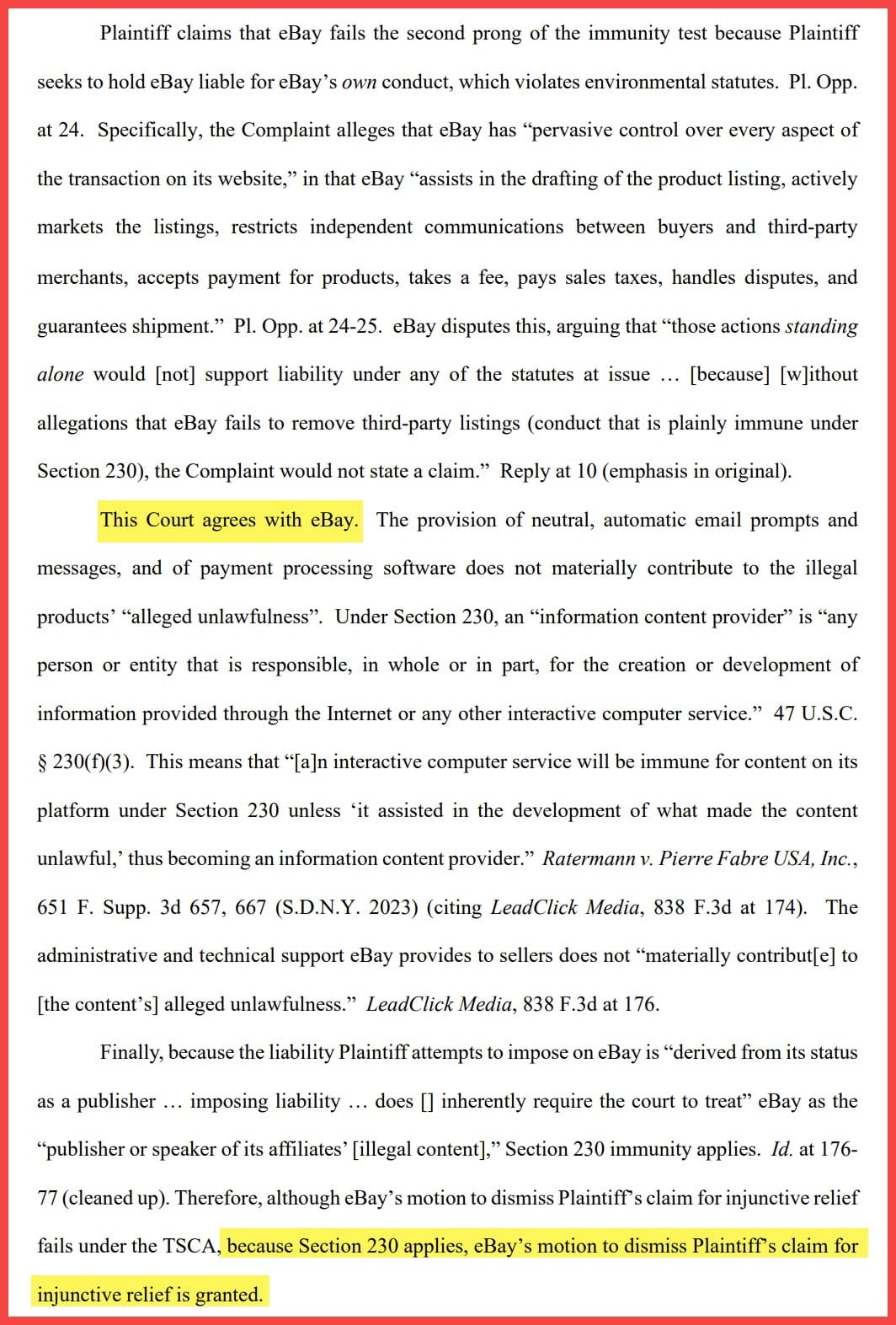
Read the full decision:
eBay faced an estimated potential ~$2 Billion in fines related to the violations alleged in this case, not to mention further potential lawsuits that could have come from the multiple shareholder rights firms investigating possible breaches of fiduciary duty related to these claims.
As part of their defense, eBay argued that it is "never itself a seller" and is instead "a pure third-party, peer-to-peer online marketplace."
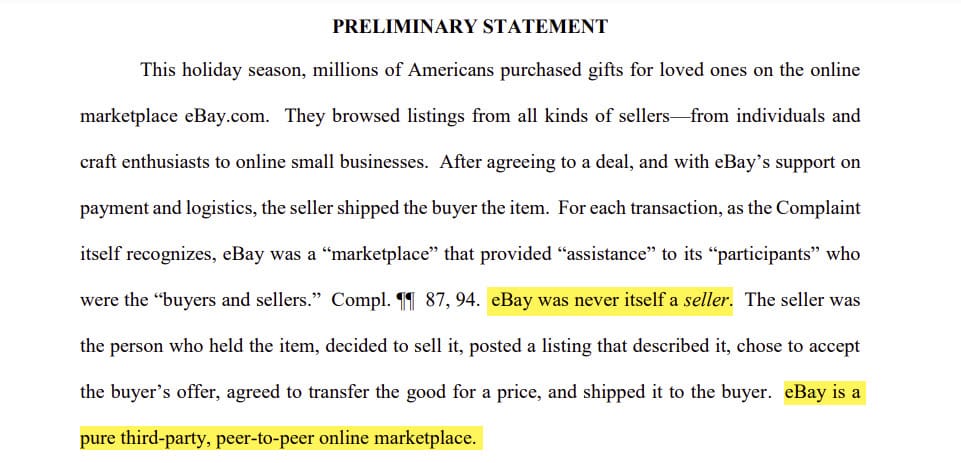
While it may be true eBay did not directly sell the specific items in question in this lawsuit, their blanket statements saying the company is "never itself a seller" have been demonstrably false at least since August 2023, when eBay set up shop on its own platform as its owned-subsidiary TCGPlayer.

Acting under the TCGPlayer name, eBay has granted their own account self-preferencing trust enhancing "Direct From Brand" badging (despite having no brand rights to the items they sell) and sells in direct competition against third party sellers with no disclosure to those sellers or to consumers that TCGPlayer is an eBay-owned company.

The success of their Section 230 defense may strike some as ironic, given eBay's attempts to force the publishers of EcommerceBytes, Ina and David Steiner, to reveal the identities of some sources in the ongoing civil suit related to criminal harassment and stalking the Steiners endured at the hands of eBay security personnel, egged on by c-suite executives.
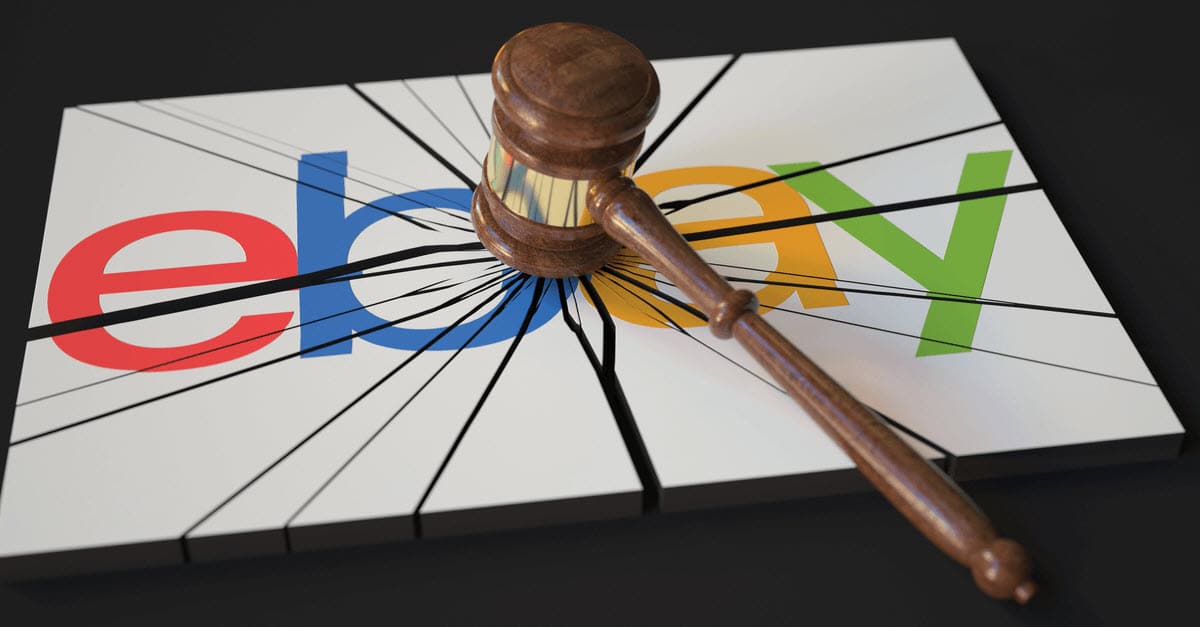
Many headlines have focused on the salacious nature of the harassment, but at its core this case is fundamentally about free speech - the Steiners were explicitly targeted for their reporting on eBay and its executives and subjected to a "White Knight Strategy" specifically designed to try to trick them into outing an anonymous source and frequent commenter, Fidomaster/unsuckEBAY.
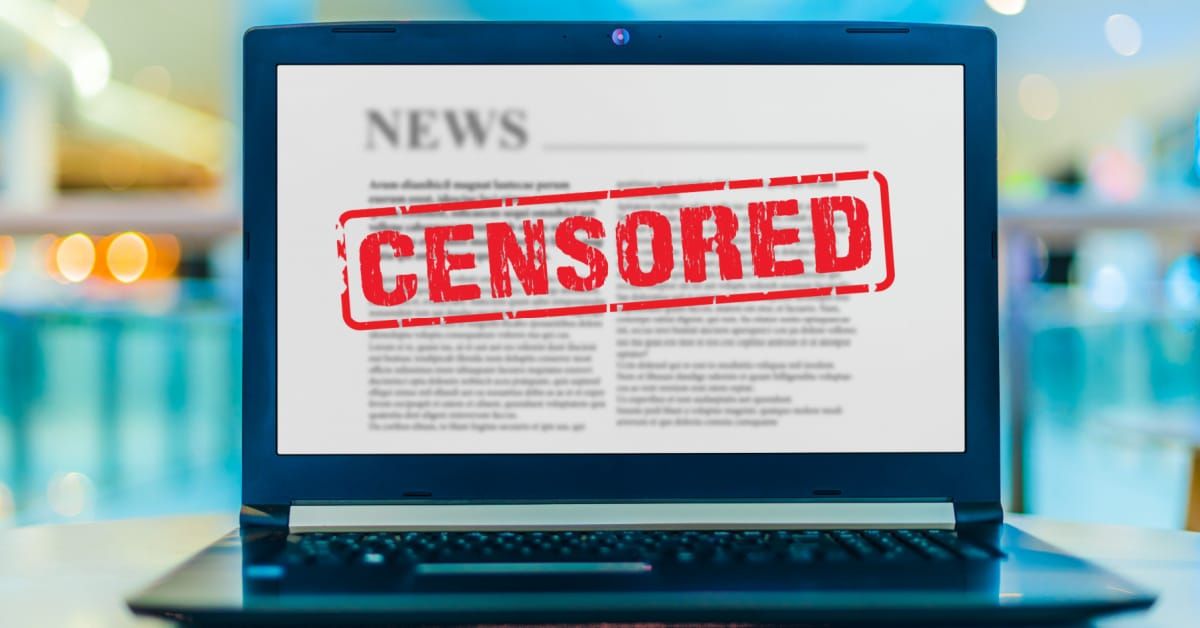
Notably, US Attorney Seth Kosto called out the White Knight Strategy as particularly egregious, abhorrent to First Amendment values and cause for significant sanction in his sentencing memorandum in one of the criminal proceedings related to the scandal.
In addition to the press freedom and free speech issues involved, Section 230 would of course likely protect the Steiners and EcommerceBytes from liability for the contents of the comments section on their site, just as eBay argued it protects them from liability of actions of 3rd parties on their platform.
This decision could also have interesting implications for a class action lawsuit recently filed by a group of Amazon sellers against Walmart, alleging the company profited from and failed to prevent a form of organized retail crime perpetrated through the Walmart Marketplace.
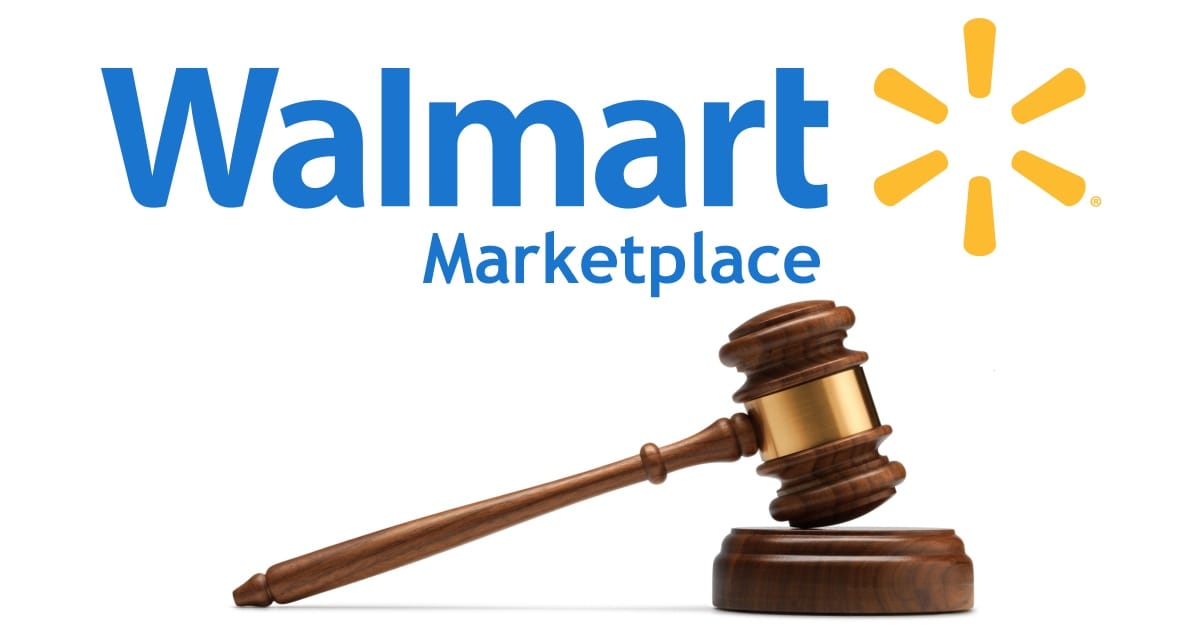
Walmart is likely to mount a Section 230 defense in that case as well, but the plaintiffs have clearly already contemplated that strategy and argue it's not applicable because Walmart is a commercial digital platform, not a social media site.
Walmart is entitled to no statutory immunity for the claims asserted in this
Complaint. Its Marketplace is not a social media site; it is a commercial digital platform created and operated by Walmart for the sole purpose of making a profit by the onboarding of merchants and for extracting a share of revenue generated on every transaction conducted by its merchants on the Marketplace.
Walmart professes that it fully controls the operation of its Marketplace by,
among other things, allegedly thoroughly scrutinizing and vetting each merchant applying for approval to appear on the Marketplace and, further, by monitoring merchants’ postings for legitimacy, and possessing and using the power to remove illegal and inappropriate merchants and their content.
Walmart’s representations of its allegedly taking such measures are grounded in its recognition that, absent these and related measures, its Marketplace would be a breeding ground for fraudulent conduct and criminal activity.
That's a distinction that could have merit, with legislators and regulatory agencies more recently considering reworking or sunsetting Section 230 completely and being more open to the idea that these very large tech companies should bear at least some liability for activity on their sites.
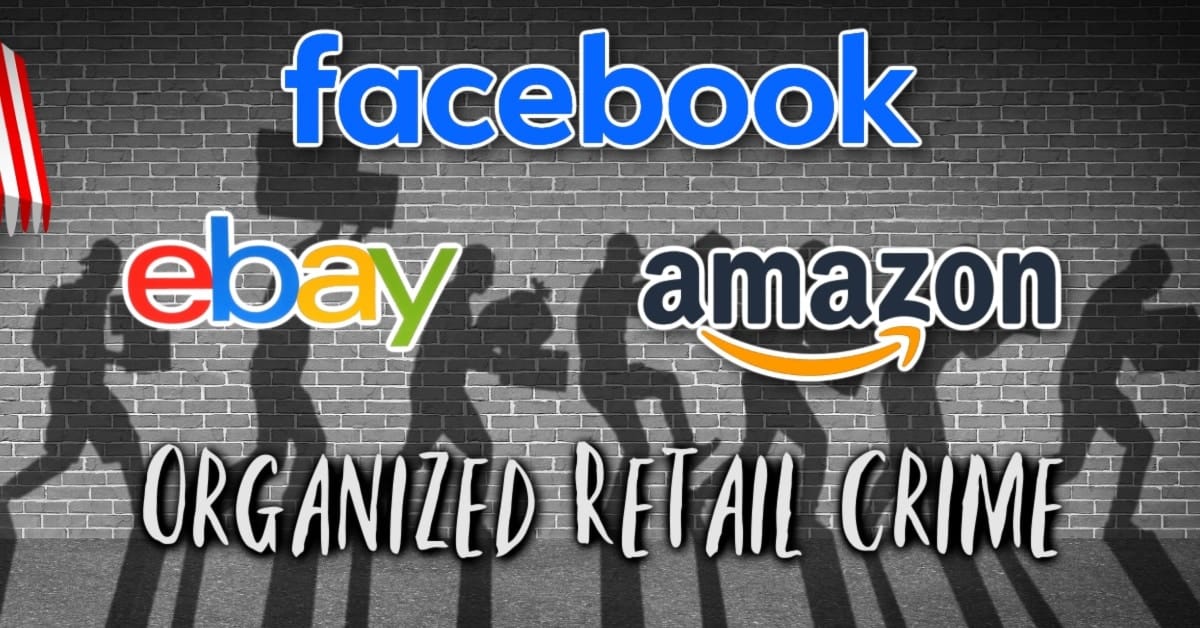
However, unless/until new legislation or judicial precedent comes to pass, marketplaces still have a powerful shield in the form of Section 230 that will be difficult to win against.
Neither eBay nor the DOJ have responded to request for comment as of time of publishing - stay tuned for updates in this developing story!
























